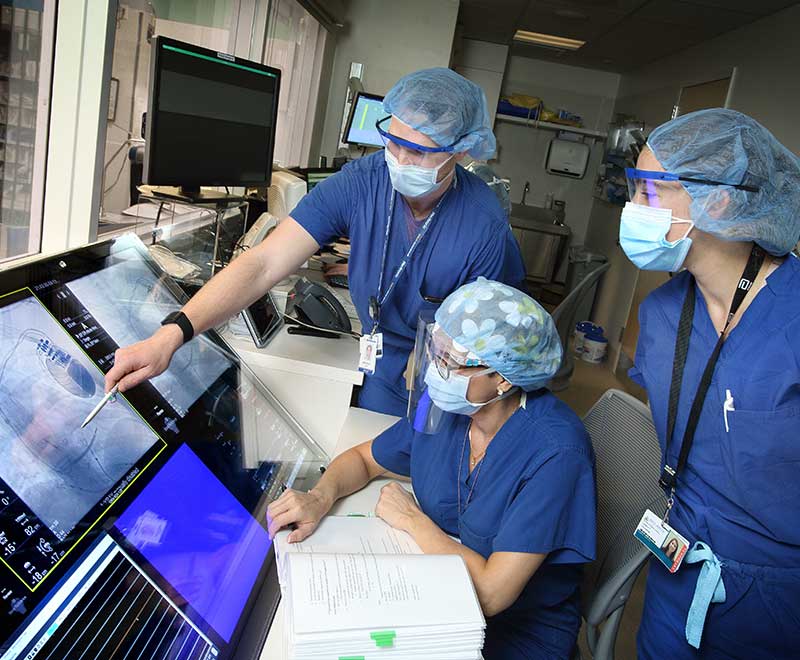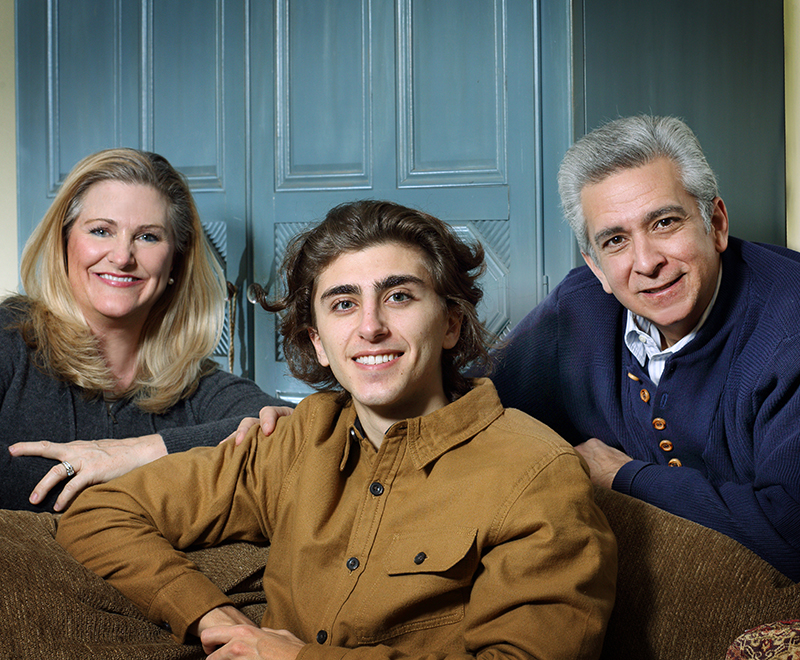-
Caridad Maylin De La Uz, M.D.

- Director, Pediatric Electrophysiology
Expertise: Arrhythmogenic Right Ventricular Cardiomyopathy, Atrial Flutter, Atrial Tachycardia, Brugada syndrome, Cardiac Ablation
Primary Location: The Johns Hopkins Hospital (Main Entrance), Baltimore, MD
-
Glenn Thomas Wetzel, M.D., Ph.D.

- Director, Pediatric Interventional Electrophysiology
Expertise: Pediatric Cardiology, Pediatric Electrophysiology
Pediatric Electrophysiology: Treating Complex Arrhythmias

Our pediatric electrophysiology (EP) team at the Blalock-Taussig-Thomas Pediatric and Congenital Heart Center provides comprehensive heart rhythm care for infants, children, adolescents and adults born with heart disease.
We are experts in the management of all heart rhythm-related conditions. These conditions range from simple palpitations (the sensation of rapid or abnormal heart beats) to life-threatening arrhythmias that can lead to sudden cardiac arrest.
Contact Us
Schedule an Appointment
International Patients
Prepare for Your Child's Visit
Diagnosis of Pediatric Arrhythmias
Not all arrhythmias are harmful. But it is essential to identify the ones that could affect your child’s health, safety or well-being. We can assess your child’s heart rhythms through:
- Electrocardiogram (EKG)
- Holter and event monitoring electrophysiology studies
- Implantable loop recorders
- Advanced mapping diagnostic techniques, including low-radiation fluoroscopy.
Treating Your Child for Arrhythmias
One or more of these treatments may be recommended to address your child’s arrhythmia.
Arrhythmia Medications
In some situations, medicine can help control symptoms of an arrhythmia, prevent episodes, or make those occurrences shorter and less intense. For drug therapy, your child might need regular blood tests to make sure medication levels are safe and effective.
Radiofrequency Ablation (RFA) and Cryoablation
Some types of arrhythmia are due to problems with the electrical impulses that activate the heart’s muscle tissue. For some of these heart rhythm disorders, a technique called radiofrequency ablation (RFA) can be a lasting way to treat the problem.
Using small, flexible tubes called catheters, doctors guide delicate instruments to the right location in the heart. The doctor applies heat to the precise spots on the heart that are causing the arrhythmia. Another technique, called cryoablation, uses targeted cold to freeze the lesions.
Many of the children we treat with RFA or cryoablation can go home the same day as their procedure, and return to their normal activities in about a week.
Pacemakers and Other Devices
If your child’s complex heart rhythm calls for a device inside the body, we can offer excellent care. The Blalock-Taussig-Thomas Pediatric and Congenital Heart Center has expertise in the newest pacemakers and defibrillators, and experience in using them to help children. Some internal devices do not even require surgery on the breastbone, which can leave a scar.
If the diagnosis indicates a pacemaker may be necessary, a nurse who specializes in pacemakers can talk directly to your child about what to expect.
Monitoring Your Child’s Pacemaker or Implanted Cardiac Device
Through remote monitoring, our team can receive important clinical information from your child’s device, including changes in functioning, while your child remains home. This monitoring can detect subtle heart rhythm changes in your child even when he or she doesn’t feel them, and initiate treatment promptly if it is necessary.
Remote monitoring can also add convenience for your family by reducing the number of in-person follow-ups at the hospital.
Minimizing Pacemaker Scars
Although effective therapy is our first priority, we also take a cosmetically conscious approach, working with you and your child so that our therapies have minimal impact on your child’s appearance and self-confidence. If your child has already received a pacemaker and is concerned about scarring after surgery, we offer scar revision to minimize the scar’s appearance.
Inherited Arrhythmias and Sudden Death
Some arrhythmia conditions are inherited, and can affect entire families. At the Blalock-Taussig-Thomas Center, adult and pediatric electrophysiologists work together to care for families with inherited cardiac arrhythmia syndromes such as:
- Long QT syndrome
- Brugada syndrome
- CPVT
- Arrhythmogenic right ventricular cardiomyopathy (ARVC)
- NKX2.5 and others
Specialists at our dedicated Familial Arrhythmia Clinic can see adult and child members of the same family on one day and at one location, making it easier for you if you live far away. The Familial Arrhythmia team includes specialized cardiac genetic counselors who can help you through the diagnosis of cardiac genetic conditions, and your understanding of what they mean for you and your loved ones.
If you are pregnant and have had inborn heart problems affecting anyone in your family, we can coordinate genetic testing through Johns Hopkins’ Prenatal Diagnosis and Treatment Center to help you and your doctor understand any risk to your unborn baby.
Meet the Experts in Children's Arrhythmia
What to Expect When You Bring Your Child to the Pediatric and Congenital Heart Center
From the moment you arrive at the Blalock-Taussig-Thomas Pediatric and Congenital Heart Center, you will find comfort and reassurance. We are happy to walk families through our facility so you can see each setting where your daughter or son will be cared for. The pediatric electrophysiologists on our team work closely with you and your child so you know what to expect. Our caring approach helps your child feel safe and comfortable before, during and after their treatment.
Why Choose the Blalock-Taussig-Thomas Pediatric and Congenital Heart Center
Expertise.
We have a range of treatment approaches available, and a high level of skill in using them. That means our team can concentrate on caring for your child with the most effective and least invasive methods possible.

The latest approaches, informed by science.
As part of the Blalock-Taussig-Thomas Center, an entire team of pediatric cardiology researchers is working to solve the challenges of pediatric and congenital heart rhythm disorders. Their discoveries lead the way toward new methods of diagnostics and treatment, and promise an exciting future in managing pediatric arrhythmias.

Family-centered arrhythmia care.
Whether you are bringing a child to see us from across the street or from across the country, we consider not only our patients but also everyone who loves and cares for them. Clear communication on each step of your child’s treatment, along with convenient locations and scheduling, make things easier on your family.

An approach that supports your child’s total well-being.
Heart conditions, especially chronic ones, affect the whole child. Our team works with experts in child life and psychology to provide each patient with a complete approach that takes their feelings, hopes and concerns into account.


